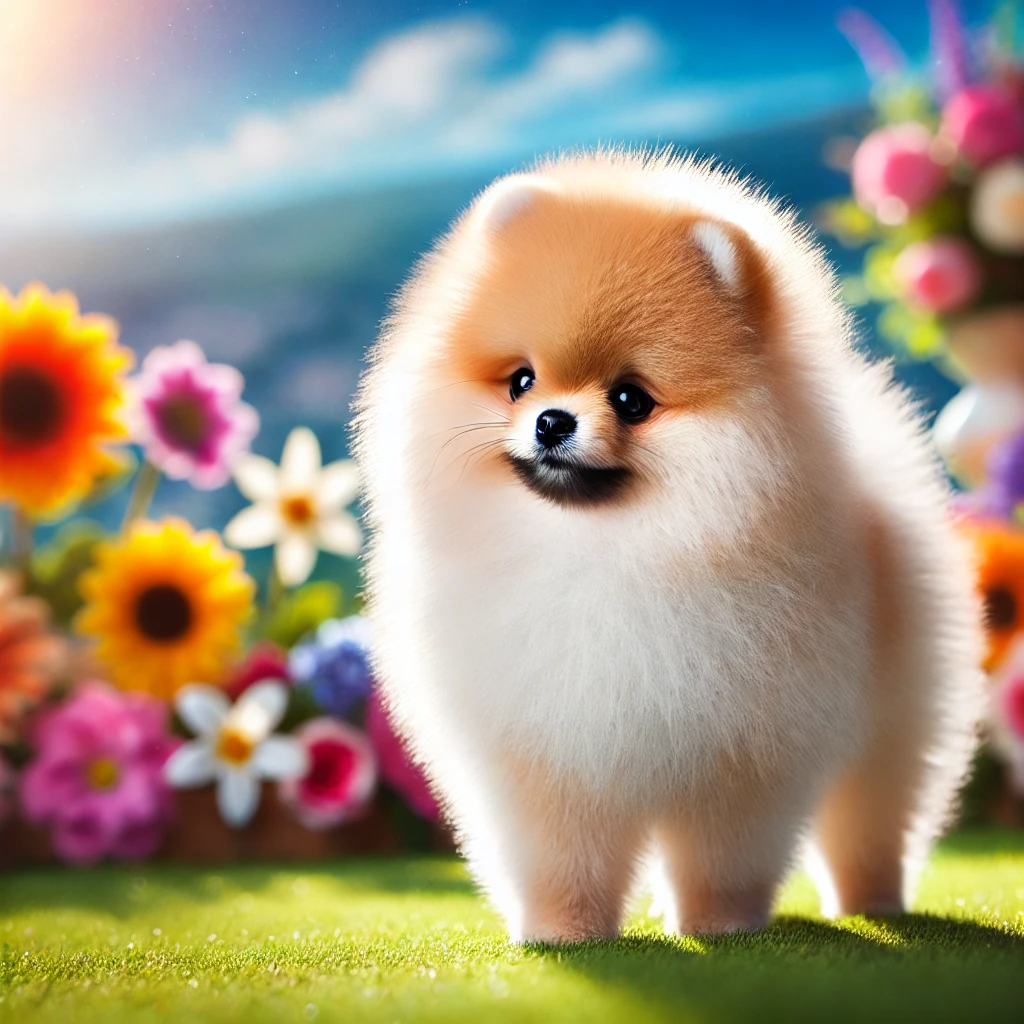
Dog lovers worldwide adore the tiny:vspf48zfklu= pomeranian for its fluffy coat and vibrant personality. This breed is not only visually striking but also full of energy, making it a popular choice for families, singles, and seniors alike. Whether you’re considering adopting one or you’re already smitten by their charm, this comprehensive guide covers everything you need to know about tiny Pomeranians—from their origins and unique traits to their care requirements and why they have captured the hearts of so many.
Origins and History of tiny:vspf48zfklu= pomeranian
The history of the tiny:vspf48zfklu= pomeranian traces back to the Arctic regions, where their ancestors were much larger sled dogs used for herding and guarding. Named after the Pomerania region (now part of modern-day Poland and Germany), these dogs were gradually bred down in size to become the small companions we know today. The turning point for the breed came during the reign of Queen Victoria in the 19th century, as she became a notable advocate for smaller Pomeranians. Her influence significantly contributed to their popularity and reduction in size, eventually leading to today’s toy-sized Pomeranian.
Physical Characteristics: Build, Coat, and Size
Tiny Pomeranians are best known for their small stature and fluffy coats. Typically weighing between three to seven pounds and standing at six to seven inches tall, they are compact but sturdy. Their double coat, consisting of a dense undercoat and a longer, fluffy outer layer, gives them their signature puffball appearance. Coat colors vary widely, with common shades including orange, black, white, cream, and sable. Regular grooming is essential to maintain the coat’s health and luxurious texture, especially to prevent matting and reduce shedding.
Their small size makes tiny Pomeranians ideal for apartment living, but don’t let their stature fool you—these dogs are full of energy and personality, often acting like much larger dogs trapped in tiny bodies.
Temperament and Personality of tiny:vspf48zfklu= pomeranian
One of the most endearing aspects of the tiny:vspf48zfklu= pomeranian is its lively and extroverted personality. Despite their small size, they are known to be alert, intelligent, and confident. Pomeranians make excellent watchdogs due to their keen sense of awareness, and they are always eager to interact with their human companions.
They thrive on attention and social interaction, making them a perfect match for families or individuals who can dedicate time to play and companionship. Their natural curiosity and playful demeanor ensure that they’re always the center of attention, and they often develop strong bonds with their owners. However, their spirited nature also means they can be a bit headstrong, which is why early training and socialization are crucial.
Health and Lifespan
While tiny Pomeranians are generally healthy, there are some health concerns potential owners should be aware of. On average, they live between 12 to 16 years, making them a long-term commitment. However, like many small breeds, they are prone to certain conditions, such as:
- Dental issues: Their small mouths can lead to overcrowded teeth, so regular dental care is essential.
- Joint problems: Patellar luxation, a condition where the kneecap slips out of place, is common in tiny Pomeranians.
- Tracheal collapse: This occurs when the windpipe becomes weak, leading to breathing difficulties.
Maintaining regular vet check-ups, a healthy diet, and a consistent exercise routine can help mitigate these risks and ensure that your tiny:vspf48zfklu= pomeranian lives a long, happy life.
Training Tips for tiny:vspf48zfklu= pomeranian
Training a tiny Pomeranian can be both rewarding and challenging. Despite their small size, these dogs have big personalities and can be quite independent. The key to successful training lies in consistency and positive reinforcement. Here are a few tips to get you started:
- Start early: Begin training and socialization as early as possible. This helps them develop good habits and become well-adjusted to different environments and people.
- Be patient: Tiny Pomeranians are intelligent, but they can also be stubborn. Patience and repetition are critical to ensuring they understand and follow commands.
- Use positive reinforcement: Reward-based training works best for this breed. Use treats, praise, and affection to encourage good behavior.
- Socialization: Expose your Pomeranian to various experiences, sounds, and people to prevent them from becoming overly territorial or anxious.
Training is also an excellent way to bond with your Pomeranian and reinforce the strong relationship that this breed naturally seeks with its owners.
Cost of Owning a tiny:vspf48zfklu= pomeranian
Before adopting a tiny:vspf48zfklu= pomeranian it’s essential to consider the financial commitment involved. The initial cost of purchasing a Pomeranian can range from $500 to $5,000, depending on factors such as lineage, breeder reputation, and location. Beyond the purchase price, you’ll also need to budget for:
- Veterinary care: Regular check-ups, vaccinations, and potential health issues.
- Grooming: Frequent grooming is necessary to keep their coat in pristine condition, which may involve professional services.
- Food and supplies: High-quality dog food, toys, and bedding are necessary for your Pomeranian’s well-being.
- Training classes: Enrolling your dog in puppy training or obedience classes can be an additional cost but is highly beneficial for proper socialization.
Considering all these factors will help you prepare for the responsibilities of owning a tiny:vspf48zfklu= pomeranian
Adoption and Responsible Breeding
If you’re considering adding a tiny:vspf48zfklu= pomeranian to your family, it’s important to choose a responsible breeder or consider adoption. Ethical breeders prioritize the health and well-being of their dogs, ensuring they are well-cared for and bred without hereditary issues. Ask breeders for health clearances and visit their facilities to confirm that the puppies are raised in humane conditions.
Alternatively, adopting a Pomeranian from a rescue organization is a wonderful option. Many Pomeranians find themselves in shelters due to unforeseen circumstances, and giving one a second chance at a loving home is incredibly rewarding.
Interaction with Other Pets and Children
Despite their small size, tiny Pomeranians can have strong personalities, which may make them more assertive around other pets. When properly socialized, they tend to get along well with other animals, but supervision is key, especially around larger dogs, to prevent injury.
As for interactions with children, tiny Pomeranians are generally good family pets. However, due to their fragile size, they may not be the best match for very young children who may handle them too roughly. Teaching children how to properly interact with small dogs is crucial to ensuring everyone in the household coexists happily.
Fun Facts about Pomeranians
Pomeranians are not just adorable companions; they also have some fascinating traits and history that make them even more interesting. Here are a few fun facts:
- Famous Owners: Queen Victoria wasn’t the only royal enamored by Pomeranians. Marie Antoinette and Mozart were also said to be fans of the breed.
- Survivors of the Titanic: Two Pomeranians famously survived the sinking of the Titanic, rescued by their owners.
- Vocal Nature: Pomeranians are known for being talkative. Their alertness and curiosity often make them quick to bark at new sights and sounds, making them excellent watchdogs.
Conclusion
tiny:vspf48zfklu= pomeranian may be small in size, but they have large personalities and endless charm. From their historical roots as working dogs to their current status as beloved companions, this breed has captivated dog lovers around the world. With proper care, grooming, and training, a tiny Pomeranian can make a delightful addition to any household.
Their lively demeanor, intelligence, and affectionate nature make them ideal pets for a variety of owners. Whether you’re a senior looking for a loyal companion or a family seeking an energetic pet,tiny:vspf48zfklu= pomeranian are sure to bring joy into your life. Remember, adopting or purchasing a Pomeranian is a commitment, and understanding their needs will help ensure a long, happy life together.
By following this comprehensive guide, you’ll be well-prepared to provide your tiny:vspf48zfklu= pomeranian with the love and care they deserve.




